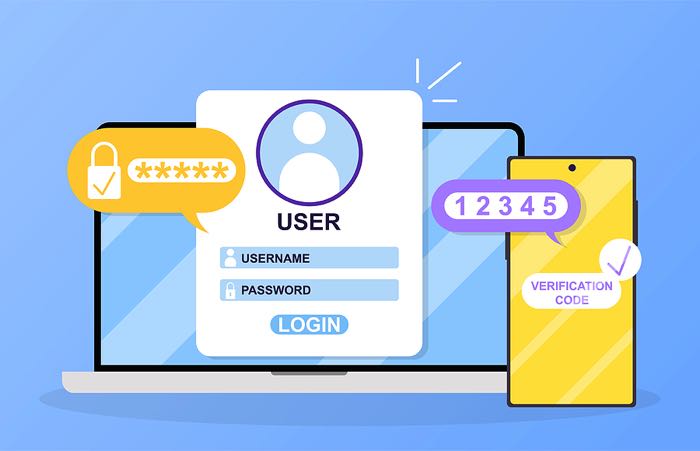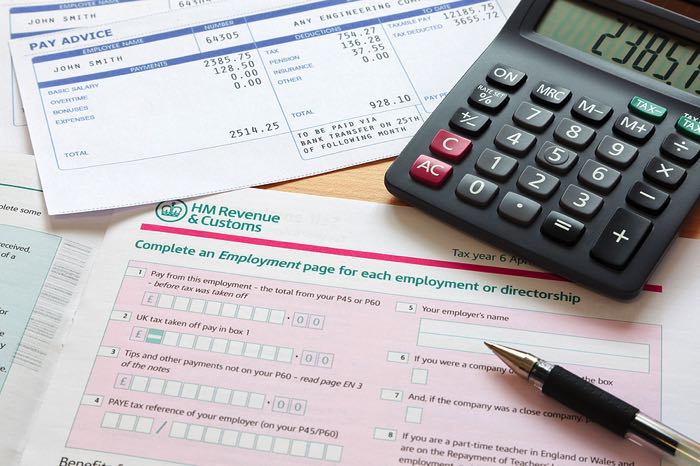 When betting in person at a high street bookmaker, if there is any suspicion that you may not be of legal gambling age, you will be asked to show your ID. Following a quick check of this photo ID, showing you are at least 18 years of age, you will usually be free to place bets or play on any of the machines.
When betting in person at a high street bookmaker, if there is any suspicion that you may not be of legal gambling age, you will be asked to show your ID. Following a quick check of this photo ID, showing you are at least 18 years of age, you will usually be free to place bets or play on any of the machines.
When betting online though, further checks are carried out because it is much easier to pretend to be someone else when sitting behind a computer screen. This is why online bookmakers employ ‘Know Your Customer’ (KYC) processes so they can be sure of who they are dealing with. You may be wondering why it really matters so in this article we will focus on why they check their customers and how exactly this happens.
Know Your Customer Process
Should you ever dig into the terms and conditions of an online bookmaker, you are likely to see references to KYC or ‘Know Your Customer’, to give it its full name. It is a process which, as the name suggests, sees bookmakers verify the details that their customers provide. Now, at least for any online bookie operating in the UK, every single customer must pass appropriate KYC checks. Well, at least this is what should happen. In reality, the UK Gambling Commission found that one betting operator alone failed to perform adequate KYC checks on over 4,000 customers.
Name, Address & DOB Check
Failings such as this can lead to significant fines so the bookies have a big incentive to ensure they perform the necessary KYC checks. If there were huge failings regarding verification checks over an extended period then you could very much expect the bookmaker to have their licence suspended or even terminated. As for how bookmakers get to know their customers, all it really requires in many instances is a simple verification check, confirming details such as a person’s name, address and date of birth.
The reasons the UKGC demands that bookies perform KYC checks are largely two-fold. Firstly, it is to massively reduce the risk of underage gambling. Without these verification checks it would be far too easy for children to gamble online. Secondly, checks are also an essential part of anti-money laundering policies. Bookmakers are often targets for deposits of illegally acquired funds so it would be irresponsible if gamblers could effectively fund their accounts anonymously.
Verifying Your Identity

As part of the KYC process, it is not the case that every new player has to send in documents to prove who they say they are. Instead, bookmakers are often able to make verification a painless and invisible process. They do this by checking your submitted details against existing databases, such as the electoral roll and/or credit reference agencies. When you submit your new customer registration form, if they can match the details using these lists, you will not have to send in any documents.
A Quick Process
One of the great aspects of this system is the speed it takes. Your details can be verified in the background in a matter of seconds, meaning there is no real wait for you to get started. Simply submit the registration form, wait a brief moment, and in most cases, you will be able to place your first deposit and start betting. This is particularly useful if one bookmaker you have not played at previously happens to offer the best odds on a market set to begin soon.
Sometimes Documents Are Needed
On a related point, you will need to go through the KYC process for each individual bookmaker you play at. If you pass the automatic checks at one, you are likely to be fine at the rest but this is not guaranteed, especially if any of your details have changed since. In cases when a bookmaker cannot verify your details or has any other doubts about who you say you are, documents will need supplying.
Verifying Your Identity
Do not be remotely concerned if, after registering with a new bookie, they request you send them proof of your identity. This is a routine check that happens to many customers and is in no way unusual. In most instances, documents are required simply because the bookmaker has been unable to verify your details against their databases. This can happen if you have recently moved home, you are new to the country, you recently changed your name, and so on. It could also be that you made a typo on the registration form and ended up getting your date of birth a day or month off.
Documents Requested
As we say though, whatever the reason there is no cause for alarm. When documents are requested, your account will effectively just be put on hold, meaning you cannot deposit or bet. Typically, customers will be asked to provide copies of two documents, one acting as proof of identity and another acting as proof of address. The individual bookmaker will state which documents are acceptable from either list and then the customer can choose whichever option is best for them. As a general guide though, you can expect to see the following options available:
- Photo ID – Driving License, Passport or National ID Card.
- Proof of Address – A recent utility bill, Council Tax bill or bank statement dated within the last three months, showing your name and address.
The Manual Verification Process

Providing you can supply two valid documents, you will just need to scan or take a photo of them. The next step will be to upload the documents via the bookmaker’s verification portal, something most big names have. Other bookmakers will simply request that you email the documents to their customer support team or even upload them via their live chat system. Whatever the options available, the bookie should make it very clear what documents they need and how they want them sent.
Ensure Documents Are Clear & Legible
The main thing customers should check before submitting their details is that the images uploaded are clear and legible. If they are of poor quality it is likely that these documents will be rejected and you will be asked to try again. Verification times can vary but a lot of larger bookmakers typically process verification documents the same day, often in a matter of hours. This prevents there being a long wait before most customers have full access to their accounts.
Requests Should Be Made Before Withdrawal
One important point to make here is that if verification is required, bookmakers should ask for this immediately. They should not wait until a player wishes to make a withdrawal and then request documents. New rules issued by the UKGC in May 2019 attempted to crack down on bookmakers purposefully delaying checks until any withdrawal request was made. Presumably, this was done in the hope that they could avoid paying out if a customer was unable to verify themselves.
The new rules however state that “a request made by a customer to withdraw funds from their account must not result in a requirement for additional information to be supplied as a condition of withdrawal if the licensee could have reasonably requested that information earlier”. So, only in exceptional circumstances will players be asked to verify details after requesting a payout.
Source of Wealth Checks
While on the subject of money, there is an additional check bookmakers may carry out on certain customers, which relates to their finances. This is certainly less common than your more routine identity verification but it is far from extremely rare. Known as a ‘source of wealth’ check, this takes the form of asking for some copies of personal financial documents such as a recent bank account statement. The purpose of this is that it will allow a bookmaker to see if a customer is spending within their means and/or that their funds are legitimate.
Social Responsibility
Regarding this first point, as part of their licence, bookmakers need to show a commitment to ‘social responsibility’. What this largely means is avoiding players falling into gambling-related harm. Typically, harm occurs when a player starts gambling far more than they can afford to, often due to an addiction. If bookmakers have a suspicion that a customer may be spending above their means, they should ask for financial documents. We say ‘should’ because there have been numerous instances of bookies failing to do this, and subsequently facing massive fines from the UKGC.
Anti-Money Laundering
A source of wealth check is also extremely valuable when it comes to preventing anti-money laundering. If documents show that a person is betting with funds stemming from one large unexplained payment from another individual this would raise some red flags. Similarly, any changes in betting patterns should likely raise AML concerns. The UKGC gives an example where “A grandparent with no previous gambling history, on a state pension, began to make weekly bets of about £100. Investigations later revealed that the grandparent was placing the bets on behalf of a grandson, a known criminal, and that the money spent was the proceeds of his criminal activity.”
Verifying Your Income

Evidently, it is important for bookies to ask for financial documentation in certain cases. To display to the bookie that you are betting with legal funds and within your means, a range of documents may be requested. Some standard examples include:
- Bank statement
- Payslip
- Credit card statement
- A screenshot/statement from an online payment system/e-wallet
- Contract of your employment
- Tax return
- Proof of a large sale, such as a house or car
- Proof of inheritance
The bookmaker will state which specific document(s) they are seeking. Failure to provide them within the allowed period will see restrictions placed on the account. Although identity verification checks typically occur immediately following registration (although they can be requested at a later date) source of wealth checks often come later. This is because it may take an especially large or irregular deposit that triggers the bookmaker into action.
Flutter’s New Approach
 You may not have heard of the name Flutter Entertainment before but it is a huge gambling brand that owns numerous bookmakers, such as Sky Betting & Gambling, Paddy Power and Betfair, among others. In 2021, they voluntarily introduced new measures which limits all players under the age of 25 to a £500 net deposit each month.
You may not have heard of the name Flutter Entertainment before but it is a huge gambling brand that owns numerous bookmakers, such as Sky Betting & Gambling, Paddy Power and Betfair, among others. In 2021, they voluntarily introduced new measures which limits all players under the age of 25 to a £500 net deposit each month.
So far, the policy has proved a popular one and this should not come as a surprise given that Flutter’s polling found that 77% of regular gamblers wanted extra measures to protect younger people. For the small minority of young players that can afford to lose more than £500 in a month, this limit can be increased. This can only happen, however, if customers can prove they have a sufficiently large income to justify an alternative limit.
Future Outlook
The UKGC continually updates the Licence Conditions and Codes of Practice (LCCP) and this can include changes regarding verification. Social responsibility and avoiding harm is a big priority for them so it is possible they may ask bookmakers to do even more when it comes to identifying at-risk customers.
The UKGC have also explored the possibility of imposing mandatory account limits, similar to what Flutter introduced in 2021. They requested views on a policy that would restrict customers to betting/depositing a certain amount. This limit would only be lifted if the customer supplied evidence that they could comfortably spend more than this.
The consultation responses can be viewed here. It may be something the UKGC end up taking forward and if so, this may lead to a great number of players needing to supply financial documentation to bookmakers. It might potentially reduce the number of people who become problem gamblers too.
